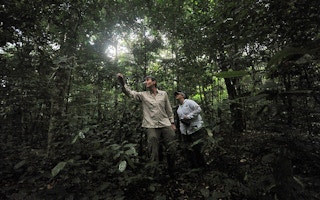This week world leaders are meeting for the COP 23 global climate change conference in Bonn.
The summit, chaired by Fiji, is the first time a small island state has formally led the process and will be an important moment for international climate action.
Fiji, like many other small island nations, is vulnerable to sea-level rise and more intense storms. The devastating hurricanes that hit countries and overseas territories in the Caribbean were described by one senior diplomat as “apocalyptic”. We now see the immense human cost, and some island states now argue that without faster climate action they face an existential threat.
The short term economic damage caused by ever more frequent and intense extreme weather also continues to grow. In the United States this year alone, the damage caused by weather and climate-related disaster events is estimated to be in excess of $300 billion.
We are beyond talking about the direction of travel and instead must focus on how quickly we reach our destination - a world of net-zero emissions in little more than a generation.
Fortunately, the economic case for climate action is compelling. The Global Commission for the Economy and Climate has shown that it’s possible to have stronger economic growth while meeting Paris climate targets, by focusing on opportunities such as renewable energy, low carbon infrastructure and forests and land use.
In fact, new research from The Nature Conservancy shows that the forest and land-use sector can deliver 37 per cent of the greenhouse gas emissions reductions needed by 2030 to avoid dangerous climate change. What’s more, the ecosystem services that forests provide include water and climate regulation, vital to global food production.
Yet demand for agricultural commodities like palm oil, soya and beef is now the leading cause of global forest loss. Scientists estimate that last year the planet lost 73 million acres of forests, equal to the size of New Zealand, and an increase of 51 per cent compared to 2015.
“
We are beyond talking about the direction of travel and instead must focus on how quickly we reach our destination - a world of net-zero emissions in little more than a generation.
Around the world governments, businesses and civil society organisations are working harder than ever to address this challenge.
Members of the Consumer Goods Forum – retail and consumer goods companies with combined sales of $2.5 trillion - have committed to mobilise their collective resources in pursuit of zero net deforestation commodity supply chains.
Many Governments – including Norway, the Netherlands, and the UK - are supporting these efforts, working in partnership with business, local communities and developing country governments to increase sustainable agricultural production alongside forest protection.
But we know we need to do more.
Last month 23 leading global businesses including Unilever, Marks & Spencer, McDonald’s and Walmart pledged their support for the Cerrado Manifesto, and committed to working with local and international stakeholders to halt deforestation and native vegetation loss in Brazil’s Cerrado.
Today, the UK government is announcing £62 million ($81 million) in funding to support efforts to reduce greenhouse gas emissions from deforestation, and to work with private enterprises and communities to develop new and sustainable ways of doing business, which support livelihoods, economic development and protect forests.
Some climate solutions will take decades to come to fruition. Others are available now.
If we are serious about accelerating our action to prevent dangerous climate change, delivering on the sustainable development goals and securing today’s supply chains for tomorrow’s generations, we need to see a step change in international action on forests and land use.
Many governments and businesses have made a start. We now need others to follow.
Paul Polman is Chief Executive Officer of Unilever and Co-Chair of the Global Commission on the Economy and Climate. This article is republished from Thomson Reuters Foundation.


















